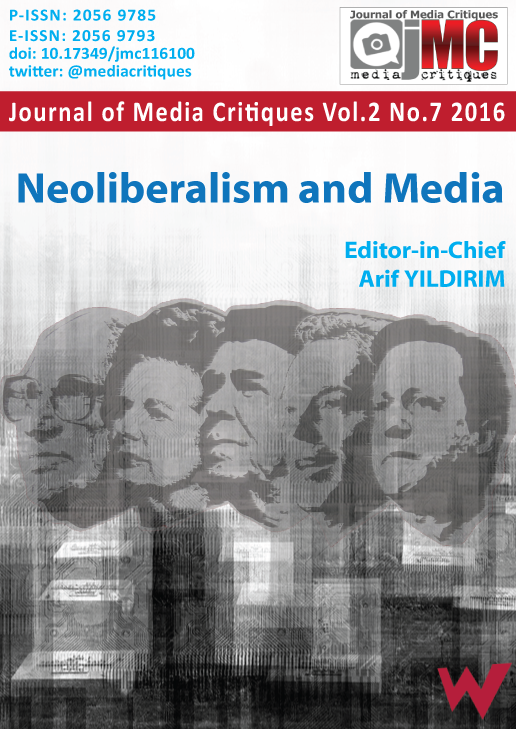CHANGING FACE OF NEOLIBERALISM, TERRORISM AND CINEMATIC APPROACHES WITHIN THE CONTEXT OF FOUCAULT: THE ROAD TO GUANTANAMO
CHANGING FACE OF NEOLIBERALISM, TERRORISM AND CINEMATIC APPROACHES WITHIN THE CONTEXT OF FOUCAULT: THE ROAD TO GUANTANAMO
Author(s): Birgül TaşdelenSubject(s): Studies in violence and power, Sociology of Culture, Sociology of the arts, business, education, Film / Cinema / Cinematography, Sociology of Politics, Sociology of Art
Published by: University of Lincoln and World Experience Campus Foundation
Keywords: Neoliberalism; Terrorism; Michel Foucault; Cinema; the Road to Guantanamo;
Summary/Abstract: Neoliberalism which ambiguities some main categories like state, ethnicity, cultural or political issues, is encouraged by idiosyncratic pressure, threat and violence acts. Discourses like war against terrorism, war against poverty or war against crime are among those explicit violence practices which serve for the legalization of the foreseen order. The main object of this study is to analyse the reflections of terrorism, which justifies the neoliberal state mechanism, in the film called The Road to Guantanamo directed by Winterbottom and Whitecross in 2006. According to Foucault, security, the main anchor point of neoliberalism, was activated against the factors which may affect the market relations (2010: 66). The psychology of danger which activates control and discipline mechanisms legalizes this security discourse. In this sense, it is necessary to analyse the film in terms of State's upholding its descending authority through "terrorism" and "security" discourses.
Journal: Journal of Media Critiques
- Issue Year: 2/2016
- Issue No: 7
- Page Range: 77-84
- Page Count: 7
- Language: English

